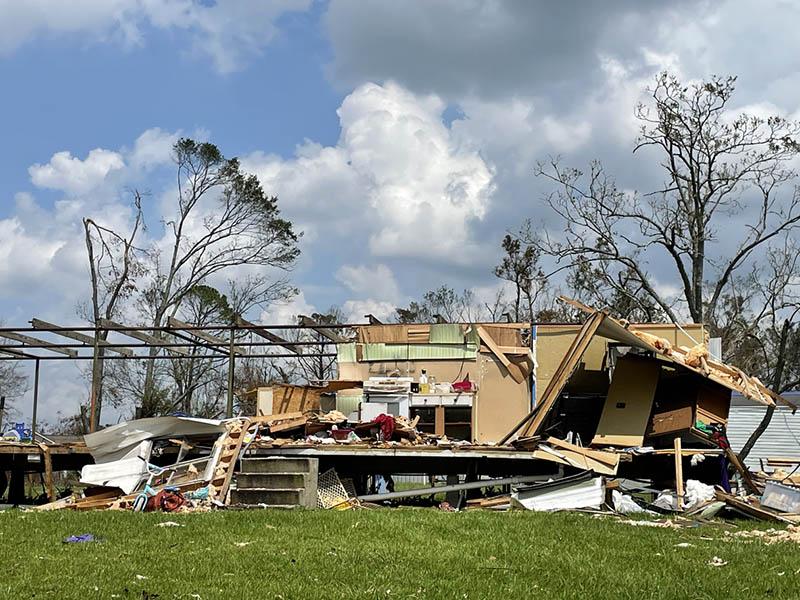Tulane awarded grant to strengthen resilience of disaster-prone communities
The Disaster Resilience Leadership Academy (DRLA), a program of the Tulane University School of Social Work, has a received a $750,000 award from the Walmart Foundation to help empower vulnerable Louisiana communities to become disaster-ready in the face of climate change.
Under the leadership of Reggie Ferreira, the Consortium for Equitable Disaster Resilience (CEDR) award will provide at-risk communities with a resilience education framework that will teach local leaders how to secure disaster resilience resources.
“Effective resilience programming makes a difference in disaster mitigation, preparation, response and recovery,” said Ferreira, DRLA director and an associate professor of social work.
“Our approach is both grassroots and leadership driven. Both are needed to drive and sustain community-level change efforts that promote equitable resilience outcomes, especially for marginalized and underserved communities. With climate change impacts and increases in both the number and intensity of disasters, inequities are becoming more apparent.”
Ferreira said Hurricane Ida is the latest disaster to prove the need for resilience training, especially in underserved communities. Regarded as one of the top 10 costliest Atlantic hurricanes in the United States, Ida resulted in numerous deaths and injuries, left thousands of properties destroyed or uninhabitable and hampered economic development. According to the latest FEMA National Risk Index, the geology, topography and location of the Gulf Region creates frequent hazards and risks that result in displacement, loss of life, property and livelihoods.
“Dr. Ferreira and the team are experts that go beyond disaster preparation, to focus on post disaster support, especially focusing on health and mental health and related inequities. As we have experienced throughout many disasters, the impact on health and mental health for responders and communities remain for years afterwards. This project will offer key insights to address these important factors in effected communities” said Patrick Bordnick, dean of the Tulane School of Social Work, where the DRLA is housed.
The DRLA is globally recognized for its curriculum and proven success in strengthening disaster resilience among community institutions.
“With our inclusive approach we will strive to address the impacts of climate change, structural inequities, disaster events and the financing barriers communities face within this context, especially for marginalized communities in the Gulf South,” Ferreira said.
The project team will work to increase the capacity of local entities to develop plans and unlock funding available through federal programs and other outlets; encourage local government leaders to listen to the concerns of stakeholders as they prepare mitigation plans for their jurisdictions; and evaluate barriers, especially at the federal level, in securing government financing.
The Walmart Foundation announced investments in organizations strengthening disaster preparedness and resilience in the Gulf Coast, basing its strategy on research showing that climate change, structural racial inequities and disaster events deepen inequality within communities and that the inability to unlock financial resources before and after a disaster has caused a greater divide in economic and financial wellbeing.
Ferreira’s team includes a range of equity, climate and resilience experts from across Tulane, Georgetown University and Dillard University. With support from the Walmart Foundation, they will implement a variety of actions over the next two years, including building local leadership, assessing the barriers associated with government funding for resilience, developing and testing a resilience model for communities, implementing a mentoring program for community organizations and training the next generation of students, and community members in collaboration with other grant recipients.
“The project team will develop a series of open-source courses to assist with resilience and equity training,” Ferreira said. “Including education as an explicit objective of our proposed project will advance discovery and understanding and promote teaching, training and learning in diverse ways.”

